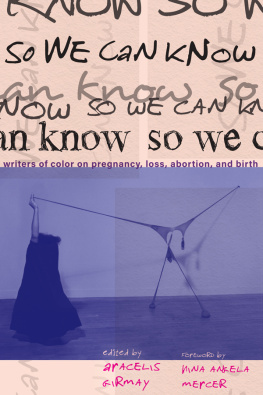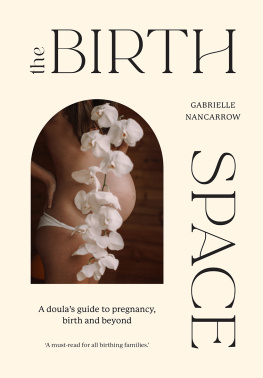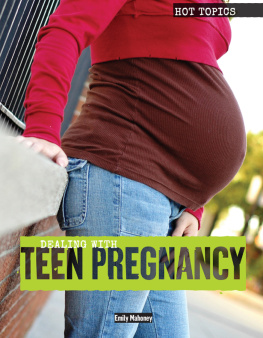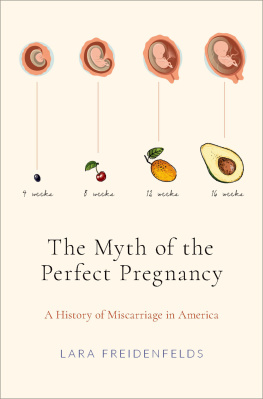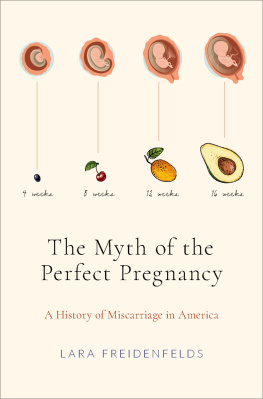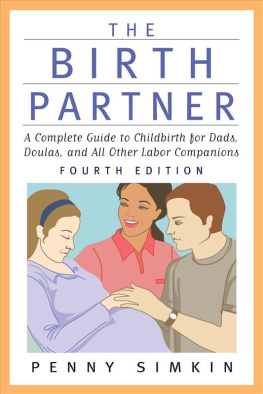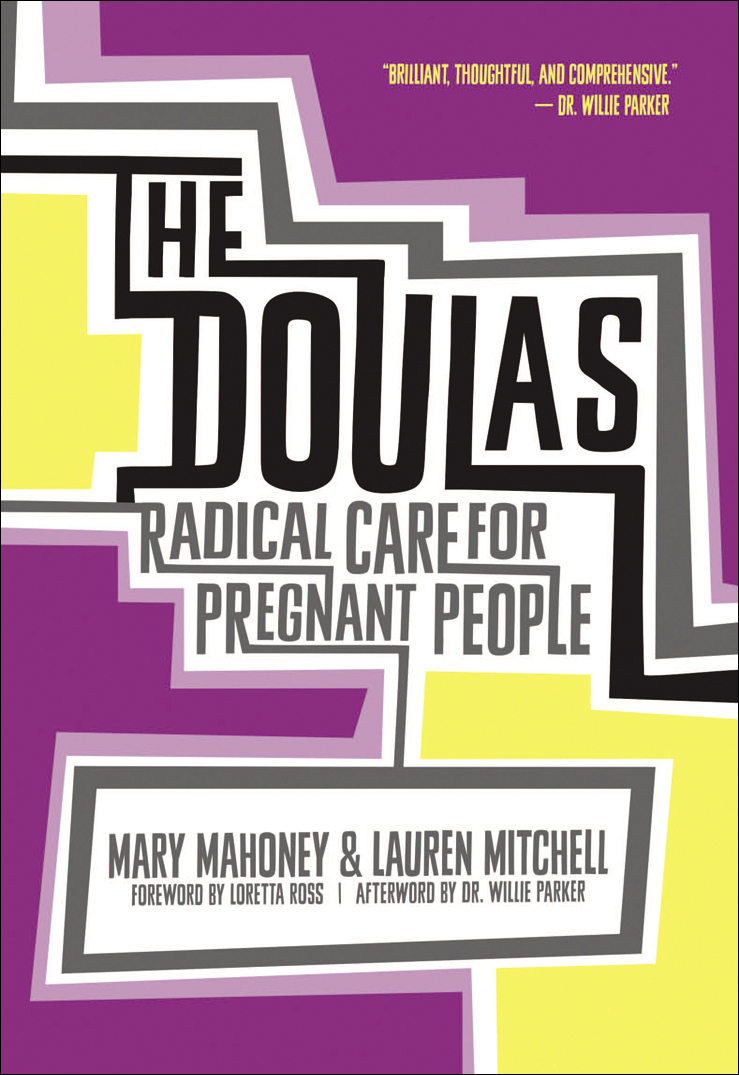
Published in 2016 by the Feminist Press
at the City University of New York
The Graduate Center
365 Fifth Avenue, Suite 5406
New York, NY 10016
feministpress.org
First Feminist Press edition 2016
Copyright 2016 by Mary Mahoney and Lauren Mitchell
Foreword copyright 2016 by Loretta Ross
Afterword copyright 2016 by Dr. Willie Parker
All rights reserved.

This book was made possible thanks to a grant from New York State Council on the Arts with the support of Governor Andrew Cuomo and the New York State Legislature.
No part of this book may be reproduced, used, or stored in any information retrieval system or transmitted in any form or by any means, electronic, mechanical, photocopying, recording, or otherwise, without prior written permission from the Feminist Press at the City University of New York, except in the case of brief quotations embodied in critical articles and reviews.
First printing November 2016
Cover design and text design by Suki Boynton
Library of Congress Cataloging-in-Publication Data
Names: Mahoney, Mary, author. | Mitchell, Lauren.
Title: The Doulas: radical care for pregnant people / by Mary Mahoney and Lauren Mitchell.
Description: New York: The Feminist Press, 2016.
Identifiers: LCCN 2016015027 (print) | LCCN 2016026774 (ebook) | ISBN 9781558619494 (e-book)
Subjects: LCSH: Doulas. | Pregnancy. | Natural childbirth--Coaching. | BISAC: SOCIAL SCIENCE / Feminism & Feminist Theory. | MEDICAL / Nursing / Maternity, Perinatal, Womens Health. | HEALTH & FITNESS / Pregnancy & Childbirth. | SOCIAL SCIENCE / Womens Studies.
Classification: LCC RG950 .M33 2016 (print) | LCC RG950 (ebook) | DDC 618.4/5--dc23
LC record available at https://lccn.loc.gov/2016015027
Like water on stone, I have loved them, and they have marked me.
NAOMI WALLACE, One Flea Spare
Table of Contents
Guide
CONTENTS

Most people have never heard of doulas, but Id venture that all pregnant people could use one. Having a person who unconditionally nurtures you during a major life experience is a privilege too few enjoy. Doulas provide this exquisite nonjudgmental support to othersoften strangersand touch peoples lives in profound ways.
The original doula was a female slave (from the Greek word doul), and the term eventually evolved in the past forty or so years to designate women trained as birth attendants. In 2008, though, a trio of young activists launched the concept of abortion doulas into the zeitgeist. By imagining the doula role anew, they expanded the meaning of the word to include the full spectrum of possible pregnancy outcomesbirths, adoptions, abortions, miscarriages, and deathsas well as services to women, men, transgender, and gender nonconforming people.
These new doulas proudly bear witness to the lives of those they serve, transforming themselves in the process. With little experience but plenty of empathy, Lauren Mitchell and Mary Mahoney helped create a full-spectrum doula movement to expand the caregiving model into one that covers the entire range of life possibilities. As activists as well as service providers, they articulated a new dimension of the human rights movement for reproductive self-determination, based on passion, service, and advocacy.
An inspiring group of full-spectrum doulas tell their stories in this book. Some serve in hospitals. Others labor in abortion clinics or at adoption agencies. Others work in homes. Together, they represent a fresh generation of caregivers who weave diverse pregnancy experiences into a holistic service and advocacy model that challenges stigmatized, artificial divisions among pregnancy outcomes. The same people who give birth sometimes have abortions or miscarriages. Some births culminate in an adoption. Every pregnancy is different, and each has its own finale.
That simple truth is why this book is precious. The stories of these full-spectrum doulas and their collective knowledge help end the painful social stereotypes that cause pregnant people to be categorized as good or bad based on a pregnancys outcome. Through the eyes of doulas, we witness the range of pregnancy experiences affected by imbalances of power, privilege, and knowledge, whether pregnant for four weeks or nine months. These doulas call it story-based care because they hear many stories of people for whom some choices are straightforward, while others offer extreme complexity, requiring the deftly engaged services of doulas who can handle both emotional and technical difficulties.
We also learn how important it is for doulas to take care of themselves in order to be brave for people whose experiences may be shrouded in stigma and secrecy. Doulas give so much emotional, physical, and spiritual support to others that they may fail to save some love for themselves. They join the movement to serve, not to be served. Because they see the macro-level systems that shape the experiences of their clients, they can let their desire to help fight injustices disguise their need to replenish themselves. But an empty vessel cant fill others. When they come up against burnout, cynicism, and rage, this new cadre of reproductive justice activists must help each other recalibrate, regroup, and reaffirm their commitment to themselves and others.
Unlike most caregiving services, abortion doulas are exposed to the physical and emotional dangers also faced by clinic doctors, nurses, receptionists, and escorts, some of whom have been killed or assaulted by violent vigilantes. After all, clinic escort James Barrett was killed in Pensacola, Florida, in 1994 along with the doctor, John Britton. In 2015 two civilians killed at a Colorado Springs Planned ParenthoodJennifer Markovsky and KeArre M. Stewartwere at the clinic supporting friends. Worrying about domestic terrorism while providing a medical service should not be a part of a doulas repertoire, but these activists generously help others navigate these perils, even as they face the threats themselves.
Like many, I experienced pregnancy as a totally life-altering event for which I was not prepared. I felt a confused mixture of wonder and terror during my first pregnancy as a teenager in the 1960s, not quite believing it was happening to me. I knew little about sex and less about pregnancy. I marveled at the changes in my body and its potential for motherhood. I felt like an adult emancipating from childhood. At the same time, I was in an exhausting state of denial. I remember hoping that the pregnancy would be gone when I woke up and my body would revert back to its prepregnancy state. Now, looking back as a grandmother, I know fear filled me. The primal fight or flight reflexes were dominant. And, because abortion was not legal at the time, my family knew of only two options for me: to keep the baby or choose adoption.
Full-spectrum doulas did not exist then, but I can tell you now that I desperately needed one. My mother was traumatized by the incest that led to my pregnancy and she scarcely knew how to advise me, much less offer any support or care. My father was angry that this had happened to his daughter, and felt powerless to visit his hurt and rage on our miscreant relative. While I was assured of their love, I didnt know anything about the process of pregnancy and birthing, or how to evaluate my few reproductive options.


